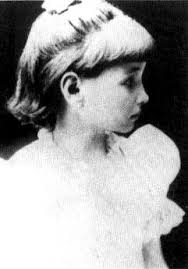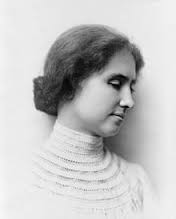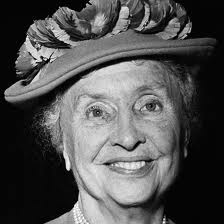|
|
SIMON SAYS EXERCISE VIDEO!INSPIRE: THINK DIFFERENTLY! |
Today's Agenda! Make sure to put all your answers in your notebook!
I. Write down today's agenda. DO SIMON EXERCISES AND WATCH INSPIRE: THINK DIFFERENTLY! II. Video Lesson of the Day: Reading Vocabulary! III. Read, Write, and Watch (BELOW!) Record answers in notebook. Then, do morning exercises! IV. Complete Math of Problem of Day (In notebook!! Then, show Mr. B!) V. Language Skills! (Correct the sentence in your notebook!! Do the analogies! Write the sentence of the day! Make sure to do all your work in your notebook!! Then, show Mr. B! ) VI. COMPLETE Reading Passage of the Day (The Moon)! VII. Complete the questions for the Reading Passage! Write the answers in your notebook! VIII. 15 Minutes of IXL at Grade level in Geometry! Write the work and answers in your notebook! (Click here for IXL Link) IX. Write about it! Using Dialogue. Write a conversation people might have at a doctor's office. See survey for more details! X. Complete Play Ball Project! Here is the link (Click). XI. Shoot for Loot! XII. Nametag tag! Write a positive adjective on a name tag and give to a a classmate! XIII. GOAL / WORK CHECK-IN (MR. B WILL CALL YOU TODAY!) Play Ball Project! (Click here to visit Project Page!)
Video Lessons of the Day:
Learn about reading vocabulary!
|
Lunch Resilient Rock n Roll Rotini & Italian Meat Sauce
Humble Helpful Ham & Turkey Round Sandwich Brave Brainy Beef Nacho Salad Pondering Precious PB & J Round Sandwich Writing Dialogue Lesson! Part 2Watch the presentation! Then, write about a conversation that would take place at a doctor's office!. You must include at least four different exchanges of conversation. This means you will at least have four paragraphs (Remember, to indent with each new speaker! Write your doctor's office dialogue in your notebook and submit it below!
Your browser does not support viewing this document. Click here to download the document.
Analogies of the Day
Learning Pages and Activities:
What is an analogy? Click here! Analogy Practice (5 minutes!) Click here Complete Analogies! 1) CONCLUSION : ESSAY A) theme : song B) meal : dessert C) parade : party D) scene : play Bridge Sentence: A conclusion is part of an essay. A __________ is part of a __________. 2) EXCRUCIATING : PAINFUL A) baffling : confusing B) upsetting : exciting C) improving : hopeful D) crippling : stressful Something that is excruciating is very painful. Something that is __________ is very __________. 3) FAME : OBSCURITY Bridge Sentence: A) peace : harmony B) music : art C) knowledge : wisdom D) sorrow : joy Bridge Sentence: Fame is the opposite of obscurity. __________ is the opposite of __________. 4) CONTRACT : AGREEMENT A) limerick : poem B) human : monster C) scarf : jewelry D) dog : feline Bridge Sentence: A contract is a type of agreement. _____________________________________. |
Language Skills! Choose the sentence that is written correctly.
Choose the sentence that is written correctly.
Choose the sentence that is written correctly.
SENTENCE OF THE DAY! Write a interrogative sentence (Command) that includes personification! Use one of your vocabulary words. (Write sentence in notebook and on the link on the morning survey page) Vocabulary List: (Click here) Math Problem of the Day!Addison had 9 fifty dollar bills, 9 twenty dollar bills, 4 ten dollar bills, 6 five dollar bills, 8 one dollar bills, 9 quarters, 3 dimes, 30 nickels, and 3 pennies. He bought a a pair of fancy shoes for $22.39, an edible egg for $3.89, and a pony for $129.01. How much money did she have left after the transactions?
Read, Write, & Watch: The Power of Action!
|
Reading Passage of the Day!Make sure to put all your answers in complete sentences in your notebook!
Have you ever heard someone use the phrase “once in a blue moon?” People use this expression to describe something that they do not do very often. For example, someone might say that he tries to avoid eating sweets because they are unhealthy, but will eat chocolate “once in a blue moon.” Or someone who does not usually like to go to the beach might say “I visit the shore once in a blue moon.” While many people use this phrase, not everyone knows the meaning behind it. The first thing to know is that the moon itself is never actually blue. This is just an expression. The phrase “blue moon” actually has to do with the shape of the moon, not the color. As the moon travels around the earth, it appears to change shape. We associate certain names with certain shapes of the moon. For example, when we can see a small part of the moon, it is called a crescent moon. A crescent is a shape that looks like the tip of a fingernail. When we cannot see the moon at all, it is called a new moon. When we can see the entire moon, it is called a full moon. Usually, there is only one full moon every month. Sometimes, however, there will be two full moons in one month. When this happens, the second full moon is called a “blue moon.” Over the next 20 years, there will only be 15 blue moons. As you can see, a blue moon is a very rare event. This fact has led people to use the expression “once in a blue moon” to describe other very rare events in their lives. Questions 1) Which of the following would be a good example of someone doing something “once in a blue moon”? A. Mary likes to go to the mountains every weekend. Mary goes to the mountains once in a blue moon. B. Tom rarely remembers to take out the trash. Tom takes out the trash once in a blue moon. C. Cindy hates to wash the dishes. Nevertheless, she does it every day. Cindy washes the dishes once in a blue moon. D. Ming sometimes forgets to do his homework. Ming forgets to do his homework once in a blue moon. 2) When does a blue moon happen in nature? A. when there are two full moons in one month B. when the moon has a blue color C. when we cannot see the moon at all D. when we can only see a small part of the moon 3) Using the passage as a guide, it can be understood that which of the following sentences does not contain an expression? A. Thomas has lost his mind. B. An apple a day keeps the doctor away. C. I'll mow the grass after I finish my homework. D. It's never a bad time to start something new. 4) As described in paragraph 3, what is another example of something that has a crescent shape? A. your thumb B. a distant star C. the letter “C” D. the letter "H" 5) In the final paragraph, the author states: “Over the next 20 years, there will only be 15 blue moons.” This means that over the next 20 years, a blue moon will happen A. once a year B. less than once a year C. more than once a year D. not enough information is provided 6) As used in the final paragraph, which is the best antonym for rare? A. common B. strange C. colorful D. infrequent 7) In the final paragraph the author writes, "As you can see, a blue moon is a very rare event." The purpose of this statement is to: A. answer an earlier question B. provide an example C. support an upcoming conclusion D. challenge a previous statement 8) What main genre is the is the passage? a) fiction b) nonfiction Morning Exercises!Music Video of the Day!Make the ordinary... Extraordinary!Toast Project!Toast Project!
Invent a new kind of toast! Write a short paragraph on the steps in making your toast! Make sure it is neat. Then, create an advertisement for your toast in google presentations! Make sure your advertisement has five adjectives and five adverbs. Also, make sure your advertisement has all four kinds of sentences! Then, make toast! Animated Helen Keller Story! |




